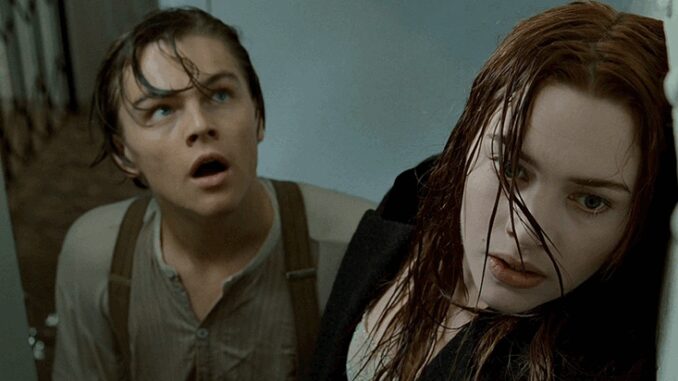
The icy embrace of the North Atlantic, the splintering cries of a magnificent ship, and the enduring image of two lovers clinging to a piece of debris – these are the indelible marks left by Titanic. For decades, the debate has raged: could Rose have made room for Jack on that floating door? The internet, armed with physics and plywood, has offered countless proofs that, yes, there was space. But such a conclusion, while physically plausible, misses the profound, tragic truth: Rose could never have saved Jack, not because of the door’s dimensions, but because their very beings, forged in the fires of their disparate worlds, made shared survival an impossibility. This is not a theory of physics, but a theory of human nature, class, and destiny.
Jack Dawson, the quintessential free spirit, was a creature of impulse, passion, and the immediate present. Born into the vast, unburdened expanse of the American West, he carried no baggage of inheritance, no corset of societal expectation. His wealth was in his experiences, his art, his ability to charm and connect. He lived on the fringes, resourceful but ultimately expendable in the rigid class structure of 1912. His love for Rose was an act of radical self-expression, a spontaneous combustion of pure affection. When the ship began its descent, Jack’s immediate instinct was not self-preservation in the traditional sense, but the preservation of his beloved. He was the protector, the rescuer, the one who would give everything without question. His life, while vibrant, lacked the deeply ingrained, often ruthless, survival mechanisms demanded by a world of privilege. He was a comet, brilliant and fleeting, destined to burn out in a magnificent, self-sacrificing blaze.
Rose DeWitt Bukater, conversely, was a product of the gilded cage. From her elaborate gowns to her suffocating engagement, every aspect of her existence was meticulously crafted for survival within a defined social order. She was trained in the art of endurance, not through physical hardship, but through psychological fortitude. She navigated a world of scrutinizing eyes, stifling expectations, and the constant pressure to maintain appearances. Her rebellion against this world, her desire for freedom, was profound, but her core programming remained: Rose was a survivor. Her instincts, honed by a lifetime of maintaining her place, even if that place felt like a prison, were geared towards adapting, enduring, and ultimately, living. Even her attempt to die by jumping off the ship was a desperate struggle for control, not a passive surrender. When chaos erupted, her upbringing, ironically, equipped her for the unthinkable: to grasp at any lifeline, to seize any opportunity for breath, for life.
The shared tragedy of the Titanic's sinking became the crucible where these two disparate natures were tested. At the moment they reached that solitary piece of debris – the famous door – their intrinsic operating systems diverged. Jack, having fulfilled his role as protector and savior, saw the door as Rose's salvation, not necessarily his own. He positioned her, ensured her stability, and then, with an almost serene acceptance, receded. His love was complete in its giving. To fight for a shared space would have been, in his romantic idealism, to diminish her chance. He had given her life; he would now give her the means to sustain it, even if it meant his own end. His sacrifice was not a moment of panic, but the final, grand gesture of his unencumbered spirit.
Rose, however, with the chilling water seeping into her very bones, could not have done the same. Her survival was not a choice; it was a deeply ingrained imperative. To have pulled Jack onto the door, potentially submerging them both, would have gone against every fiber of her being that screamed "live." The instinct she carried, born of a world where one must always secure their own place, to adapt and endure, kicked in. She lay there, shivering, watching him fade, but her grip on the wood, on life, remained absolute. She would carry his memory, embody his spirit, and live the life he wished for her, but she would do so from the vantage point of survival, because that was her destiny.
Therefore, the "Titanic theory" is not about insufficient buoyancy or poor weight distribution. It is a profound, if heartbreaking, commentary on the forces that shape us. Rose could never have saved Jack because Jack was born to be the magnificent, self-sacrificing catalyst for her transformation, a fleeting comet that illuminated her path to freedom. And Rose, forged in a world of harsh realities masked by opulence, was destined to be the survivor, the one who would carry the torch of memory into a new dawn. Their love was powerful enough to transcend class, but not powerful enough to rewrite the fundamental, inherent natures that defined their very existence in the face of death. Jack's death, though agonizing, was an inevitability woven into the fabric of who he was, and Rose's survival, though painful, was equally intrinsic to hers.
